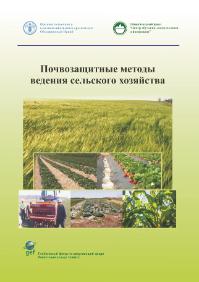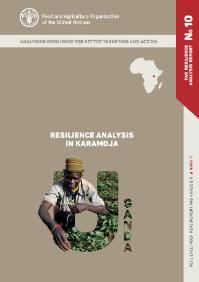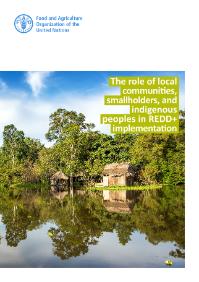Focal point
Location
The Food and Agriculture Organization of the United Nations leads international efforts to defeat hunger. Serving both developed and developing countries, FAO acts as a neutral forum where all nations meet as equals to negotiate agreements and debate policy. FAO is also a source of knowledge and information. We help developing countries and countries in transition modernize and improve agriculture, forestry and fisheries practices and ensure good nutrition for all. Since our founding in 1945, we have focused special attention on developing rural areas, home to 70 percent of the world's poor and hungry people.
Members:
Resources
Displaying 306 - 310 of 5073Почвозащитные методы ведения сельского хозяйства
Настоящие издания, разработаны на основании материалов теоретических и лучших практик демонстрационных участков, созданных в рамках проекта Сельскохозяйственной и Продовольственной Организации Объединенных Наций и Глобального Экологического Фонда «Устойчивое управление горными лесными и земельными ресурсами в условиях изменения климата».
Food security and nutrition: Challenges for agriculture and the hidden potential of soil
Report, prepared by FAO and the OECD with inputs from IFPRI, IFAD, the World Bank and WTO, submitted to the G20 Presidency of the Republic of Argentina in response to the Presidency’s request for information on future trends and challenges faced by global agriculture, with a special focus on the role of soils in promoting food security and the measures that could be undertaken to facilitate sustainable soil management.
Sistemas importantes del patrimonio agrícola mundial (SIPAM). La biodiversidad agrícola y los ecosistemas resilientes. Prácticas agrícolas tradicionales e identidad cultural
Durante siglos, los agricultores, pastores, pescadores y silvicultores han desarrollado sistemas agrícolas diversos y adaptados localmente, y los han gestionado con técnicas y prácticas ingeniosas que han perfeccionado con el paso de los años. Han sido los responsables de aportar a la humanidad una combinación esencial de servicios sociales, culturales, ecológicos y económicos. Estos "Sistemas Importantes del Patrimonio Agrícola Mundial" (SIPAM) son paisajes estéticamente impresionantes que combinan la biodiversidad agrícola con ecosistemas resilientes y un valioso patrimonio cultural.
Resilience analysis of Karamoja, Uganda 2016
The region of Karamoja, located in the northeast of Uganda, is the poorest and least developed region in the country. Historically, Karamoja has been a pastoral area; crop production, which is less reliable there, has recently emerged as an important source of household food and income in some areas. Although Karamoja bears similarities to other pastoral regions in East Africa, few of its households are self-sufficient in terms of food and most rely on barter trading for much of their staple foods.
The role of local communities, smallholders, and indigenous peoples in REDD+ implementation
Local communities, smallholders and indigenous peoples play an essential role in the sustainable management of land and forests and, as such, in mitigating and adapting to climate change. They are the guardians of approximately one-third of the world’s forests and have customary rights over a large proportion of forest lands to be managed, conserved and/or restored.











